The story of Okiku’s plates is one of the most famous tales in Japanese ghost lore.
For centuries, people have been captivated by this story, feeling a mixture of fear and sympathy.
In this article, we delve into the legend of “Okiku’s Plates,” exploring the societal context and psychological elements behind it.
We will examine how the ghostly presence of Okiku has been shaped by historical and cultural factors and how it continues to be passed down to the present day.
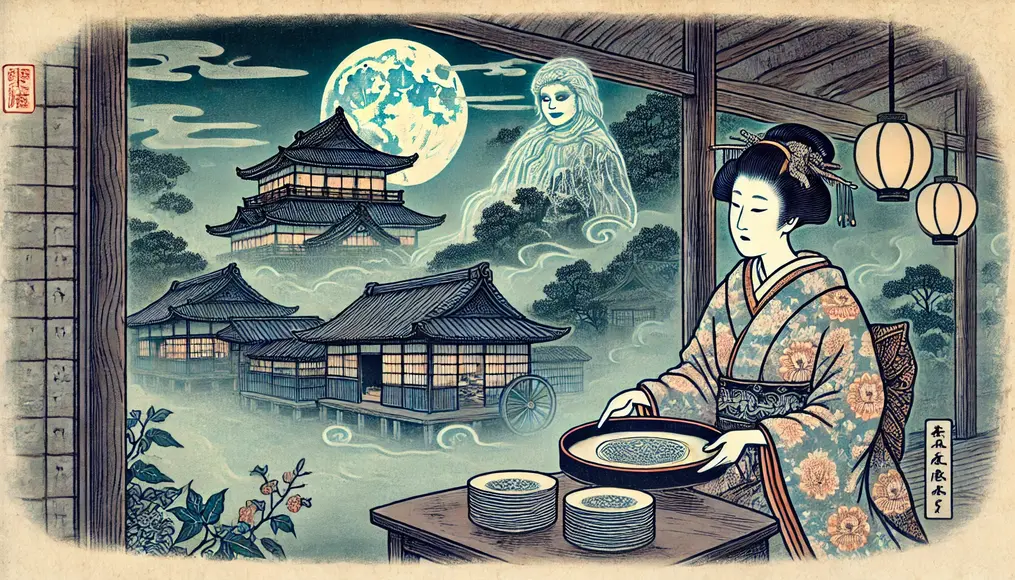
What Is the Legend of Okiku?
The story of “Okiku’s Plates” became widely known during the Edo period.
Set in a castle in Harima Province (present-day Hyogo Prefecture), the story revolves around Okiku, a maid who serves the household faithfully.
Her tragic death over a missing plate leads to her return as a ghost, creating one of Japan’s most enduring ghost stories.
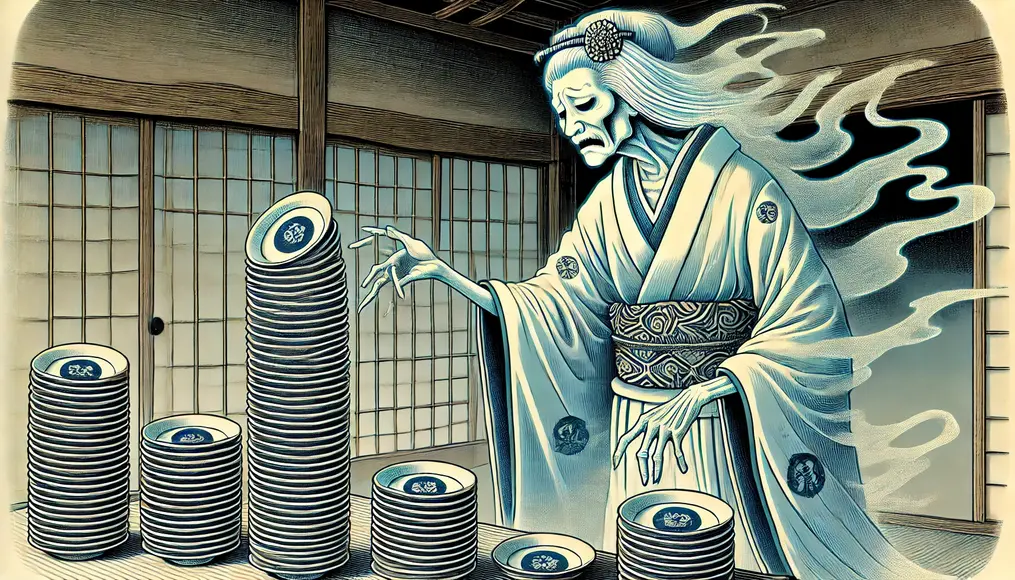
The Tale of the Missing Plate
At the heart of the story lies a missing plate, one of a set cherished by her master.
Despite her desperate search, Okiku fails to find the plate and is wrongfully accused, suffering severe punishment as a result.
This incident leads to her untimely death, and her ghostly tale of counting plates is born.
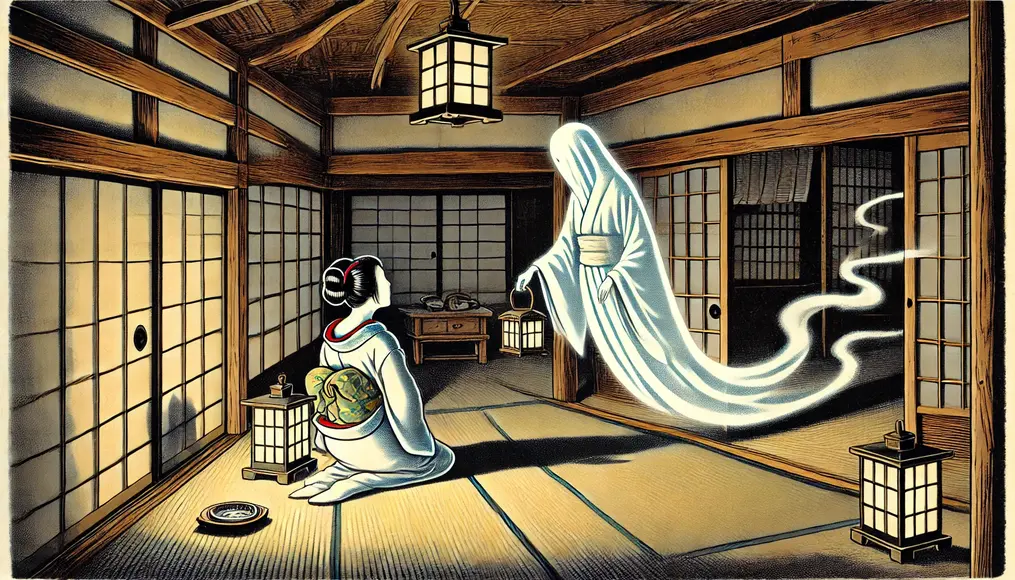
Why She Returned as a Ghost
The driving force behind Okiku’s return as a ghost lies in her profound feelings of injustice and anger.
Her act of counting plates symbolizes a powerful protest against the wrongful accusations that cost her life.
This aspect makes “Okiku’s Plates” a tale that resonates with emotional depth rather than mere fright.
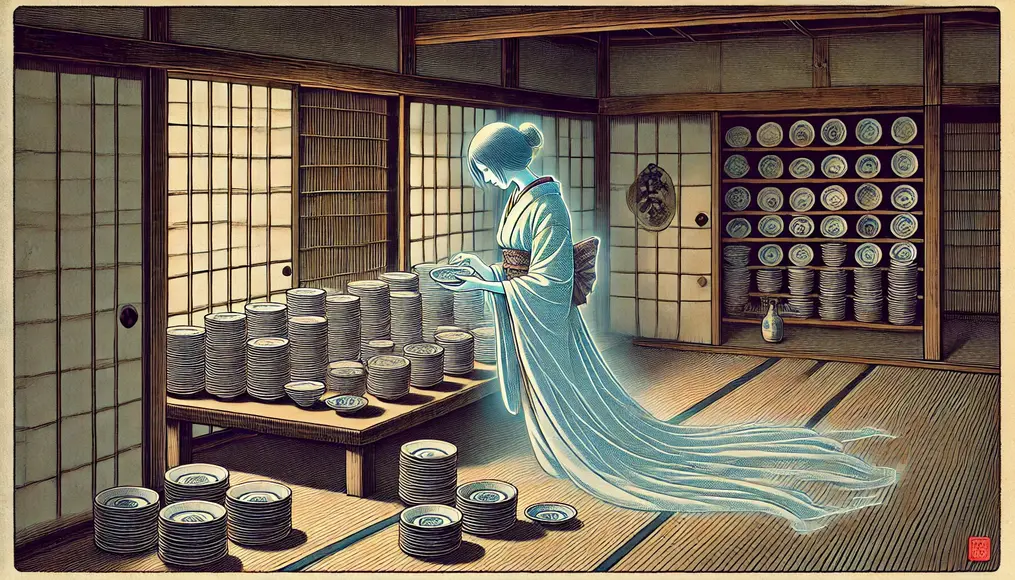
The Social Background of Okiku’s Tale
The story reflects the societal conditions and values of the samurai class during its time.
Okiku is portrayed as a loyal and virtuous maid, embodying the hierarchical authority and the role of women in samurai society.
The events surrounding the plates symbolize power, duty, and the sacrifices expected of individuals.
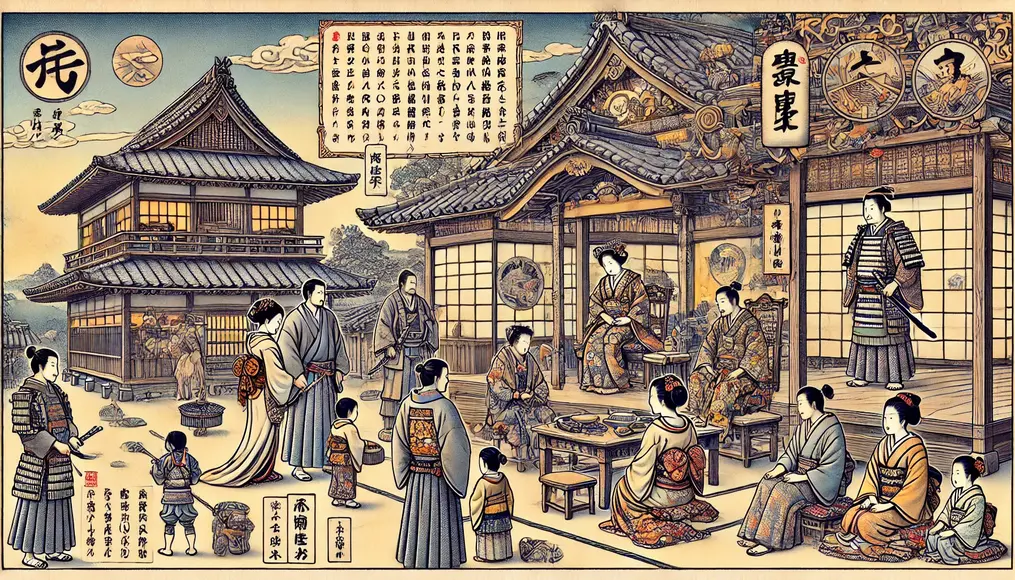
Duty in the Samurai Class
Loyalty and duty were highly prized virtues in the samurai class, extending even to the women who served them.
Okiku’s story emphasizes her unwavering loyalty, even as she bears the blame for the missing plate.
This societal backdrop lends a sense of tension and tragedy to the tale.
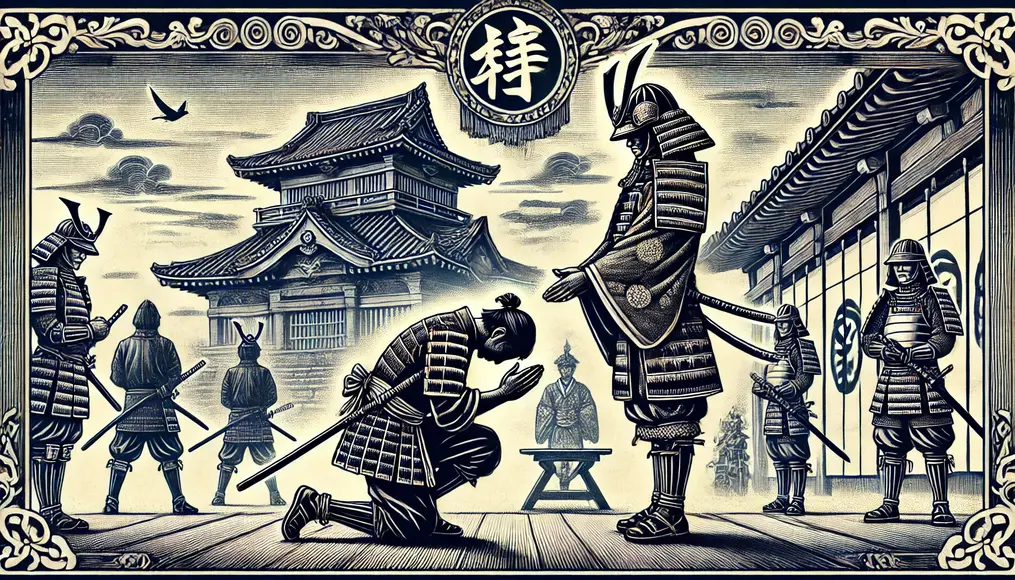
Women’s Roles and Sacrifices
Women during this era often carried significant responsibilities but were also subject to considerable sacrifice.
Okiku’s tale exemplifies this dynamic, portraying her plight as a reflection of inequality and unfulfilled justice.
This has evoked widespread empathy across generations.
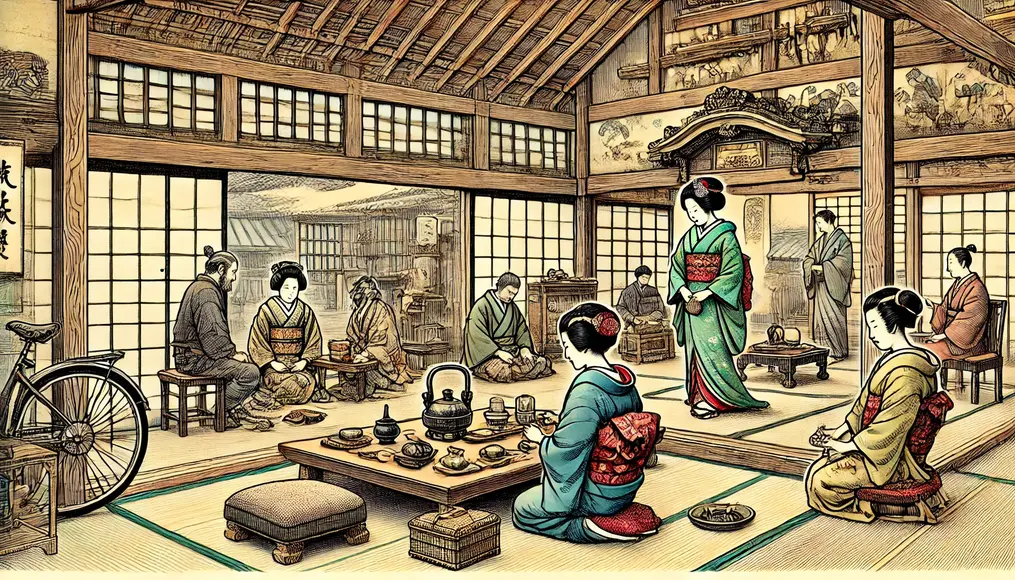
The Psychological Role of Ghost Stories
Ghost stories are not merely forms of entertainment but also serve to provide psychological relief and moral lessons.
“Okiku’s Plates” evokes both fear and empathy, leaving a lasting impression on the audience.
The psychological impact of such tales continues to influence modern horror and storytelling.
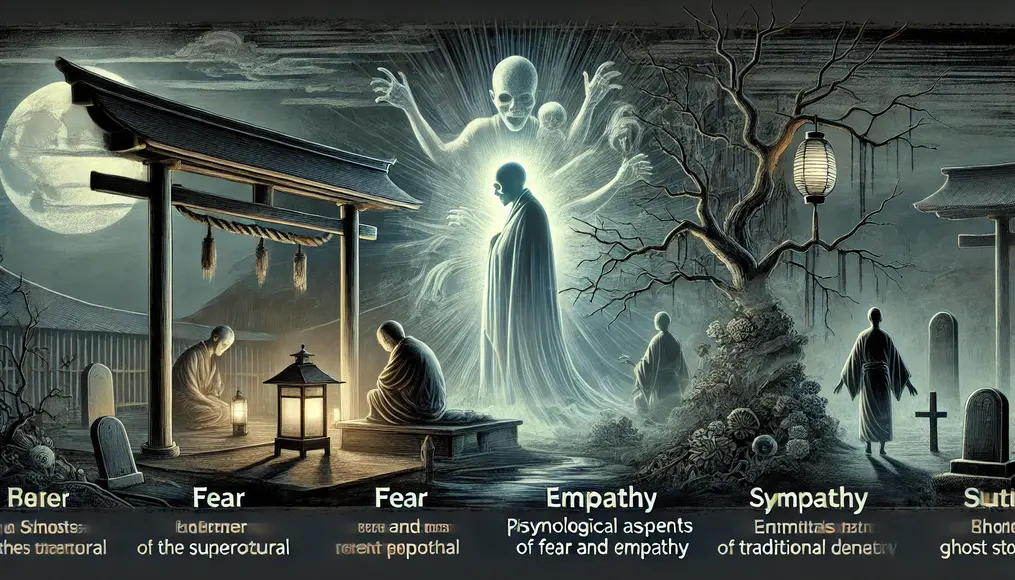
Moral Lessons in Ghost Stories
Okiku’s tale carries moral lessons, emphasizing the consequences of dishonesty and the value of loyalty.
These lessons have contributed to the story’s universal appeal and enduring legacy.
The ability to convey timeless values is a key factor in its continued resonance with audiences.
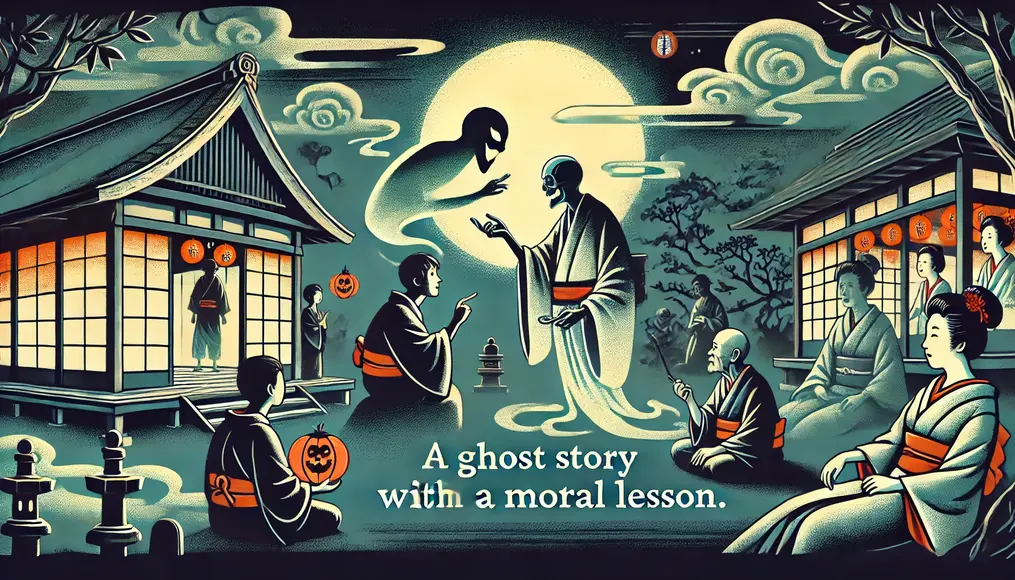
Ghost Stories as Social Commentary
Ghost tales often serve as reflections of societal discontent and anxiety.
“Okiku’s Plates” subtly critiques the power structures and the position of women in society.
This layered storytelling deepens the emotional impact and elevates it beyond simple scares.
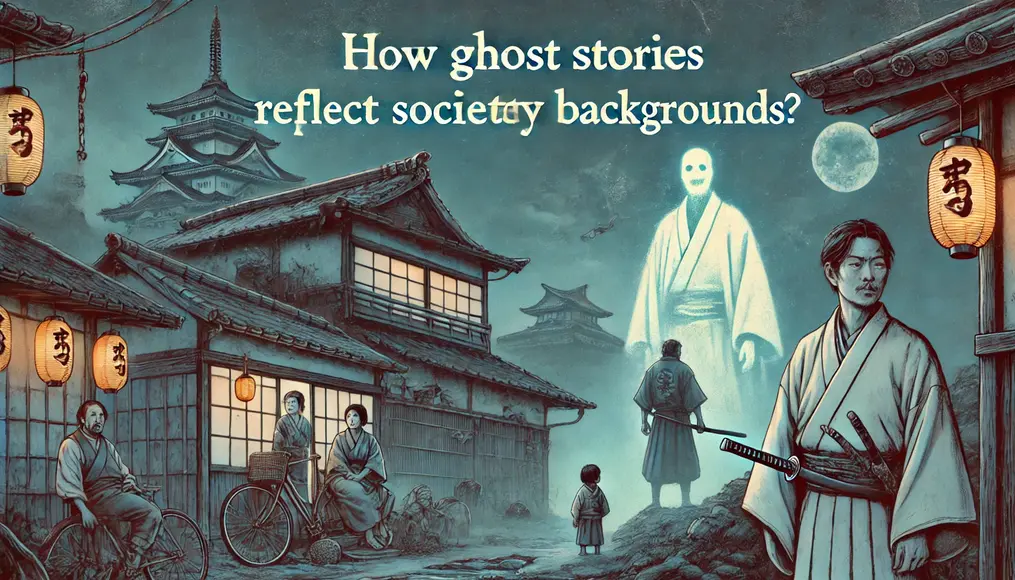
Okiku’s Story in the Modern Era
Even today, the story of “Okiku’s Plates” continues to captivate through various media.
Films, dramas, and novels offer new interpretations, ensuring the tale remains relevant and engaging.
Its universal themes make it a powerful narrative that transcends time.
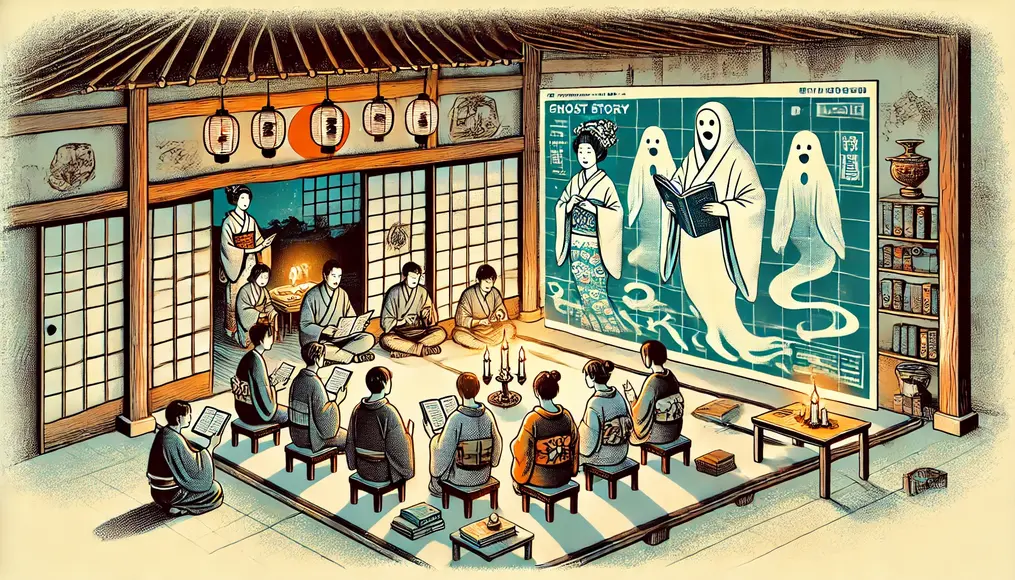
Global Appreciation of Japanese Ghost Stories
Although deeply rooted in Japanese culture, “Okiku’s Plates” has garnered interest worldwide.
Its narrative depth has been especially appreciated in countries with a strong horror tradition.
This global recognition underscores its value as part of Japan’s cultural heritage.
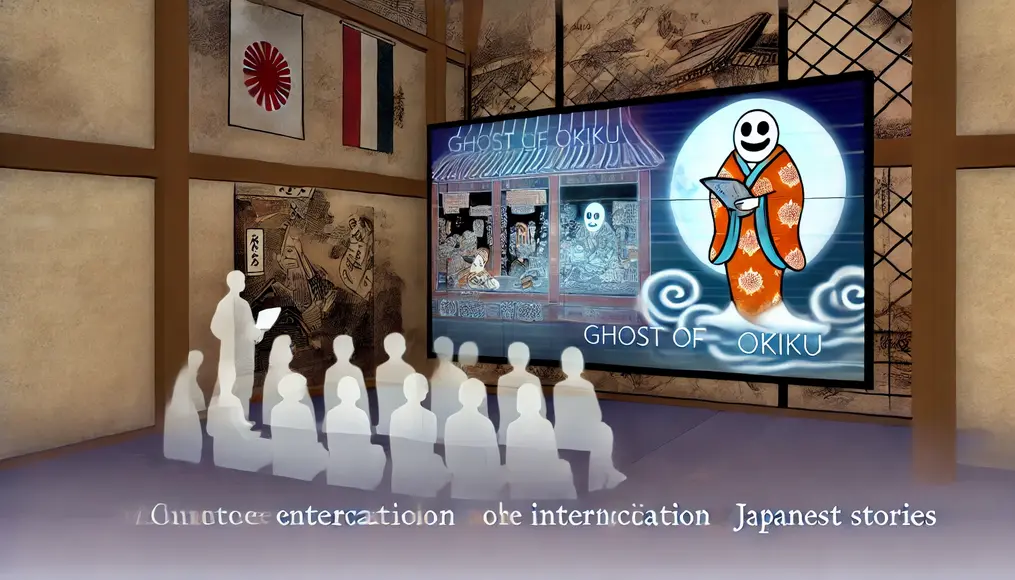
Reinterpretations in Modern Horror
Modern horror often reinterprets “Okiku’s Plates,” blending traditional elements with contemporary themes.
This evolution allows the story to resonate with modern audiences while preserving its cultural essence.
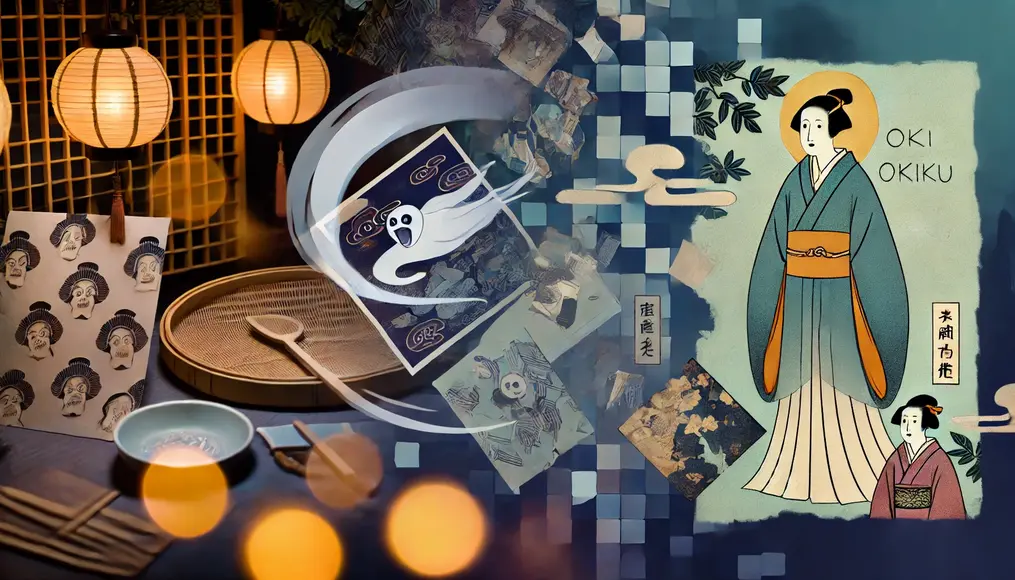
Conclusion: Universal Themes in Okiku’s Tale
“Okiku’s Plates” is more than just a ghost story; it is a reflection of human emotions and societal structures.
Its narrative continues to offer moral lessons and provoke thought in contemporary audiences.
Beyond fear, the tale of Okiku evokes empathy and invites us to reflect on timeless human struggles.
We’d love to hear your thoughts and interpretations of “Okiku’s Plates.” Share your views in the comments below!

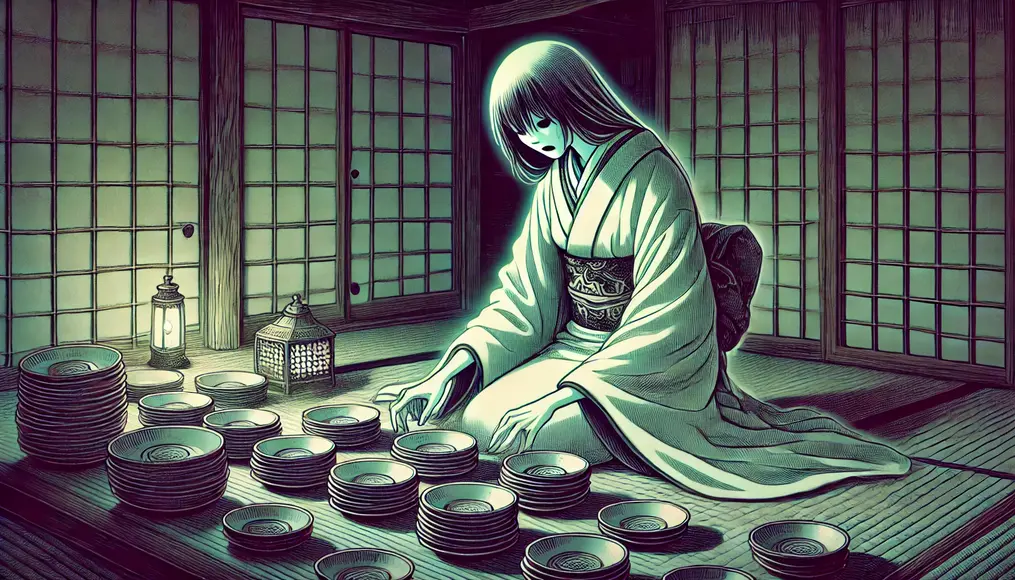


Comment